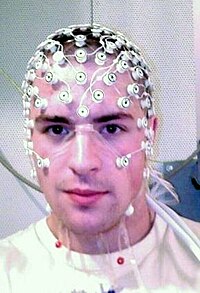
Photo from wikipedia
Neuroimaging methods such as magnetic resonance imaging (MRI) involve complex data collection and analysis protocols, which necessitate the establishment of good research data management (RDM). Despite efforts within the field… Click to show full abstract
Neuroimaging methods such as magnetic resonance imaging (MRI) involve complex data collection and analysis protocols, which necessitate the establishment of good research data management (RDM). Despite efforts within the field to address issues related to rigor and reproducibility, information about the RDM-related practices and perceptions of neuroimaging researchers remains largely anecdotal. To inform such efforts, we conducted an online survey of active MRI researchers that covered a range of RDM-related topics. Survey questions addressed the type(s) of data collected, tools used for data storage, organization, and analysis, and the degree to which practices are defined and standardized within a research group. Our results demonstrate that neuroimaging data is acquired in multifarious forms, transformed and analyzed using a wide variety of software tools, and that RDM practices and perceptions vary considerably both within and between research groups, with trainees reporting less consistency than faculty. Ratings of the maturity of RDM practices from ad-hoc to refined were relatively high during the data collection and analysis phases of a project and significantly lower during the data sharing phase. Perceptions of emerging practices including open access publishing and preregistration were largely positive, but demonstrated little adoption into current practice.
Journal Title: PLoS ONE
Year Published: 2018
Link to full text (if available)
Share on Social Media: Sign Up to like & get
recommendations!